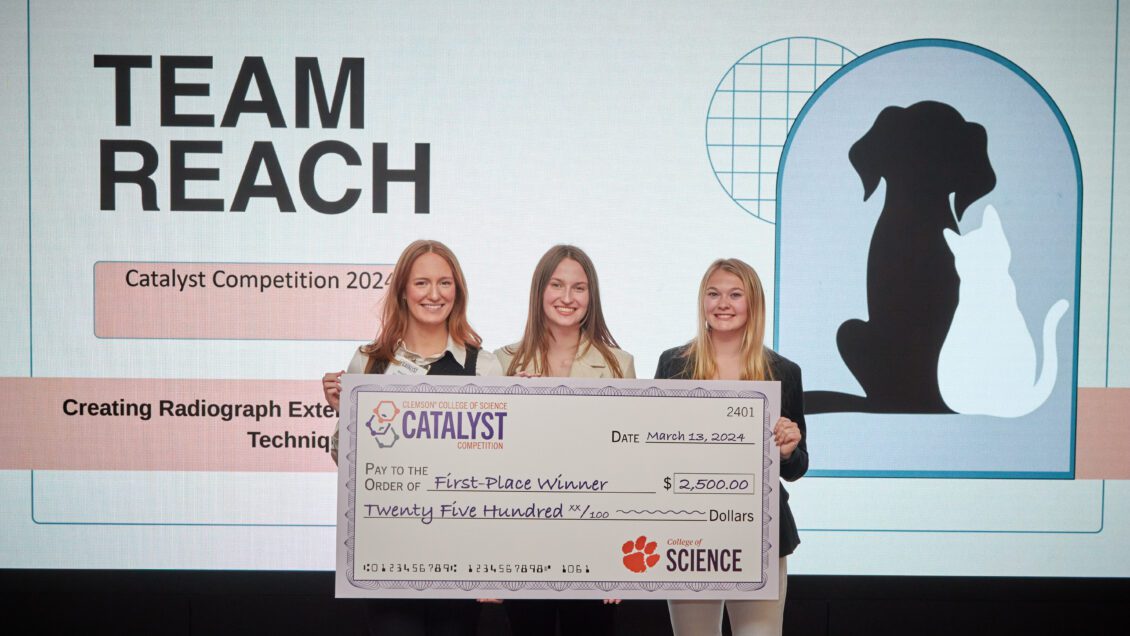Like humans, dogs should have their teeth cleaned and X-rayed on a regular basis to identify decay or other issues.
Unlike humans, dogs must be put under anesthesia to do it, posing some health risks.
Three Clemson University seniors — marketing major Anna Parker and biological sciences majors Elizabeth Nowell and Hannah May — have created a mobile X-ray device that allows veterinary offices to get quality images while reducing risks to the animal’s health.
REACH (Radiograph Extension Arm Centering Help) was the winning idea in this year’s College of Science Catalyst Competition. The entrepreneurial challenge culminated on March 13 with student teams’ pitching their innovative ideas to a panel of judges in the Watt Family Innovation Center.
Parker, Nowell and May won $2,500 and the chance to compete in the 2024 Launchpad Liftoff Pitch Competition held at the Brook T. Smith Launchpad on April 5.
“It was amazing,” May said. “There was some tough competition and an honor to win.”
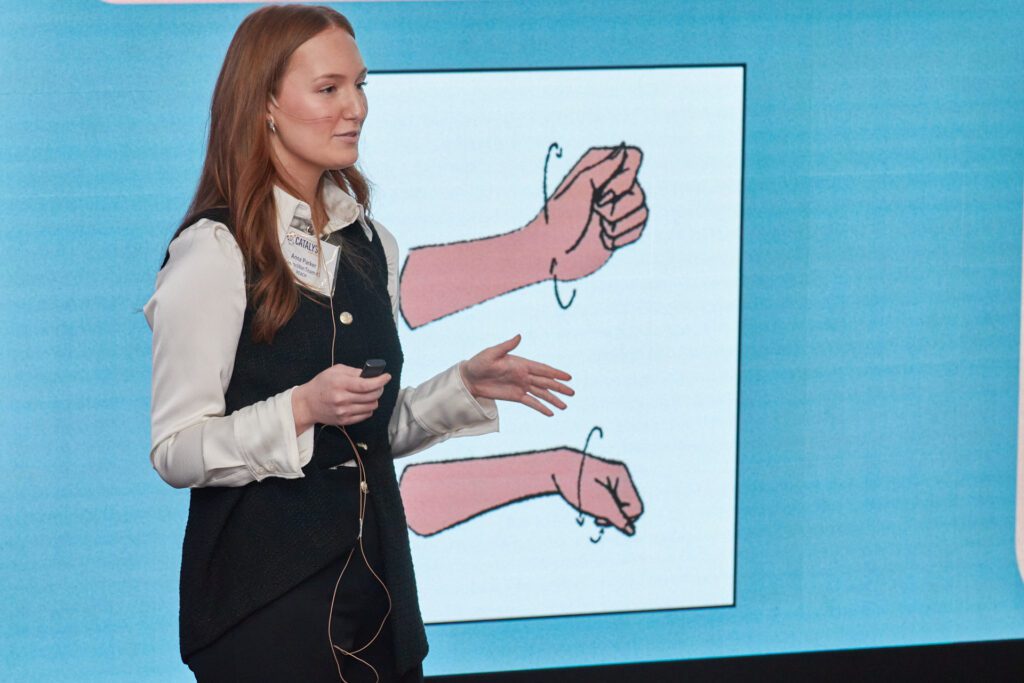
When the trio decided to pursue the competition, they knew they wanted their project to be in the health care space. Parker asked her mother, who is a veterinarian, what processes could be improved in her office and could lead to better outcomes for her and the animals she treats.
“We wanted to focus on something that health care workers have to do every day, something that should be a simple process, but it’s not,” Parker said. “We tried to find the pain points and find a way to eliminate them.”
More and more veterinary offices are using handheld X-ray guns because they are mobile and the operator of the device can be in the same room as the animal while taking the X-ray.
Difficulties
But it’s sometimes difficult for the X-ray technician to take an image at the proper angle because of how the dog is positioned and its size, other distractions in the office or because the device is blocking their view, Parker said. Even how the technician moves his or her wrist can affect the result.
“The correct position you need to X-ray a Great Dane is different than the position you need for a Chihuahua,” she said.
When the X-ray isn’t taken at the proper angle, the resulting image doesn’t show the root of the tooth and must be retaken.
The REACH device solves the problem with an innovative design that allows technicians to take a clearer, more accurate image with more consistent results. Parker said when they took the device to a veterinarian’s office for one of their trials, the office said the device resulted in the best mobile X-ray image they had ever taken.
The students said the invention could have applications in human dentistry as well.
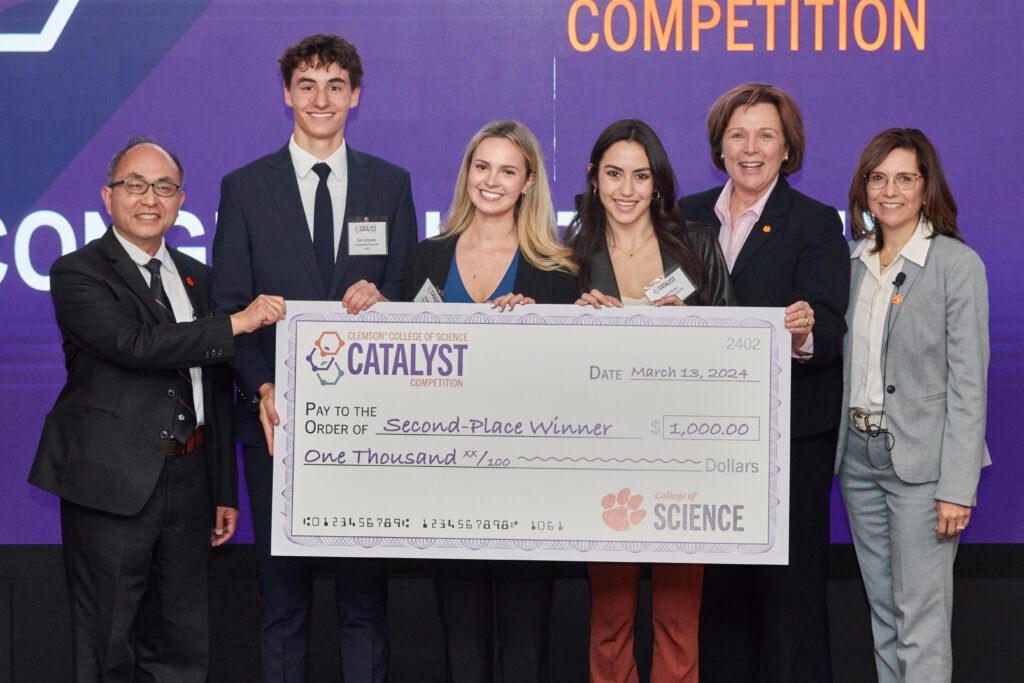
Second place in the Catalyst Competition went to H2glO, a portable UVC light that kills bacteria in reusable water bottles. Students Sylvia Flores, a senior genetics major; Anna Maresca, a junior health sciences major; and Tyler Schiesser, a sophomore biological sciences major, found that 97% of reusable water bottle users either do not clean their water bottles at all or wash them just once a week, not frequently enough to prevent the development of bacteria and mold.
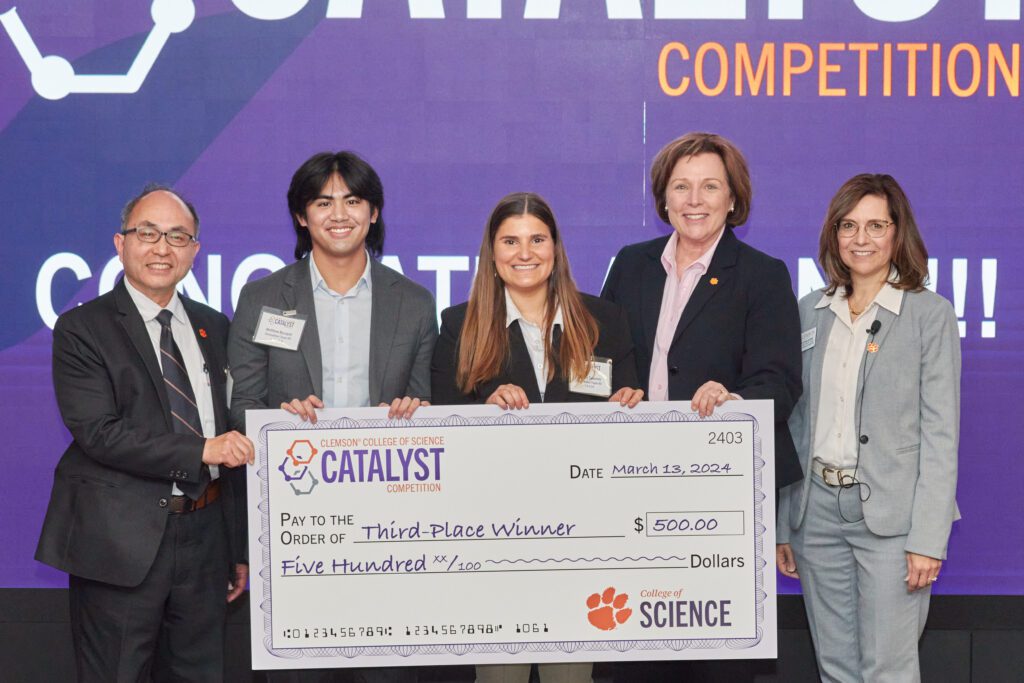
Senior biological sciences majors Matthew Bucayan and Murphy Sweeney won third place for the F.R.E.S.H. (Food Research Ensuring Safe Handling) pack. The F.R.E.S.H. pack detects gases that indicate food is spoiling prior to noticeable signs such as mold. The single-use gas-permeable pouches could be added to any food storage containers to let people know whether what’s inside is safe to eat.
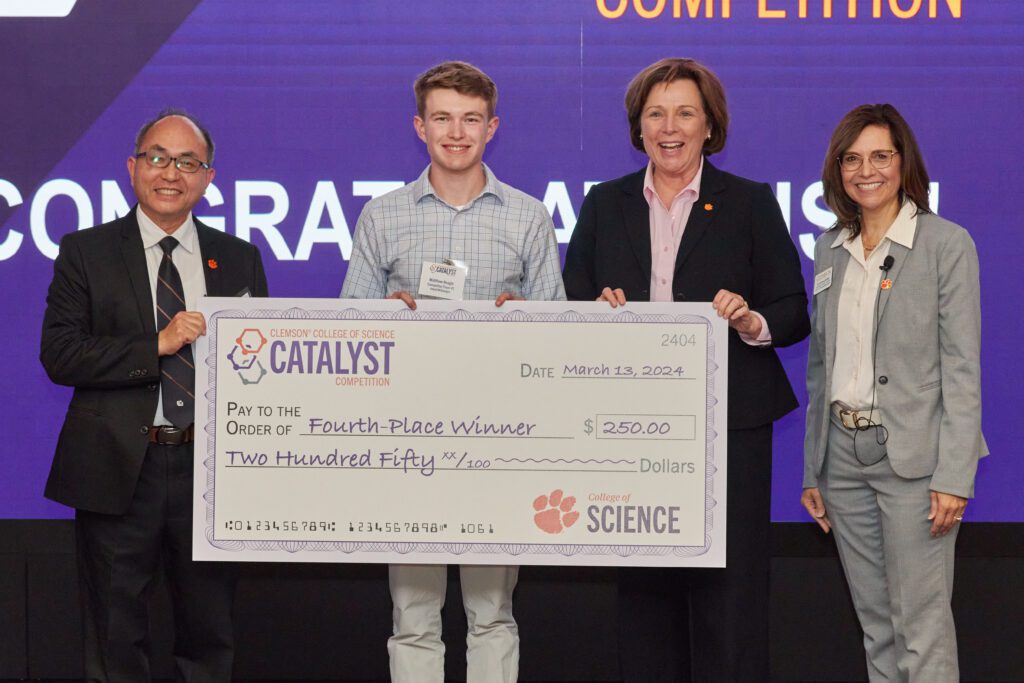
Matthew Keagle, a senior biological sciences major, won fourth place for AdipoCM Biologics, a large-scale bioregenerative solution that would harvest stem cells from fat and repurpose them to support healing for conditions such as diabetic foot ulcers.
Catalyst Competition, which held its first pitch competition in 2022, is an entrepreneurship challenge hosted by the College of Science. The Brook T. Smith Launchpad — Clemson’s Entrepreneurship Hub — is a supportive partner. To help prepare for the competition, students may enroll in a two-semester Creative Inquiry course, “Entrepreneurship in Science: From Idea to Market.”
Get in touch and we will connect you with the author or another expert.
Or email us at news@clemson.edu

